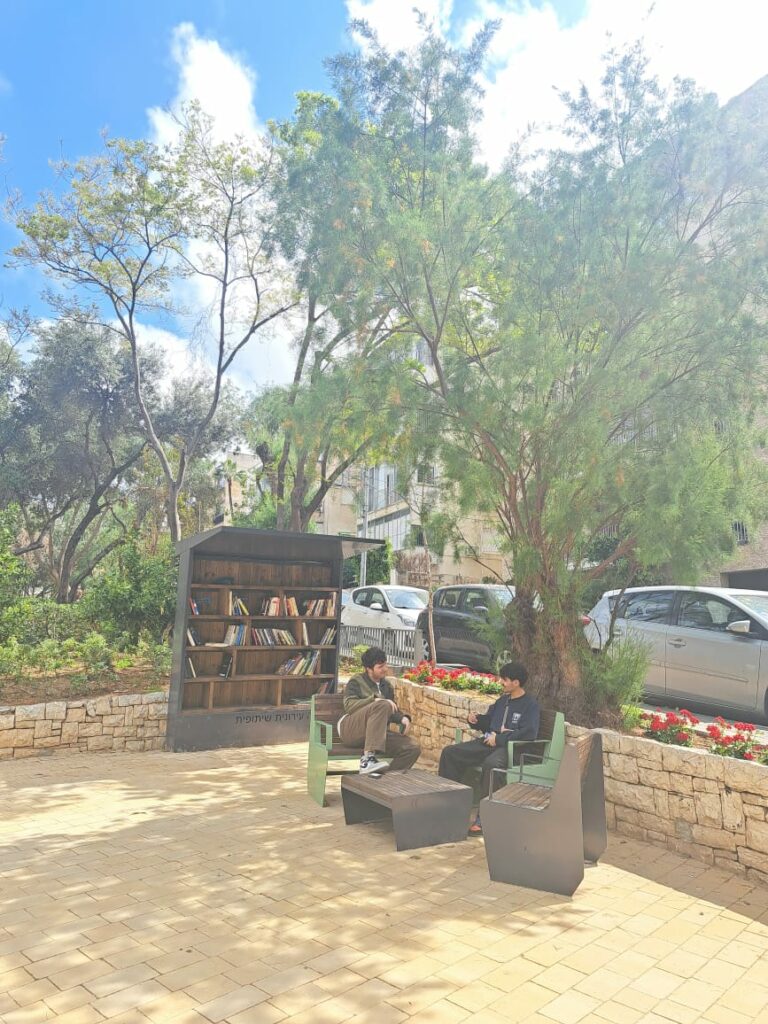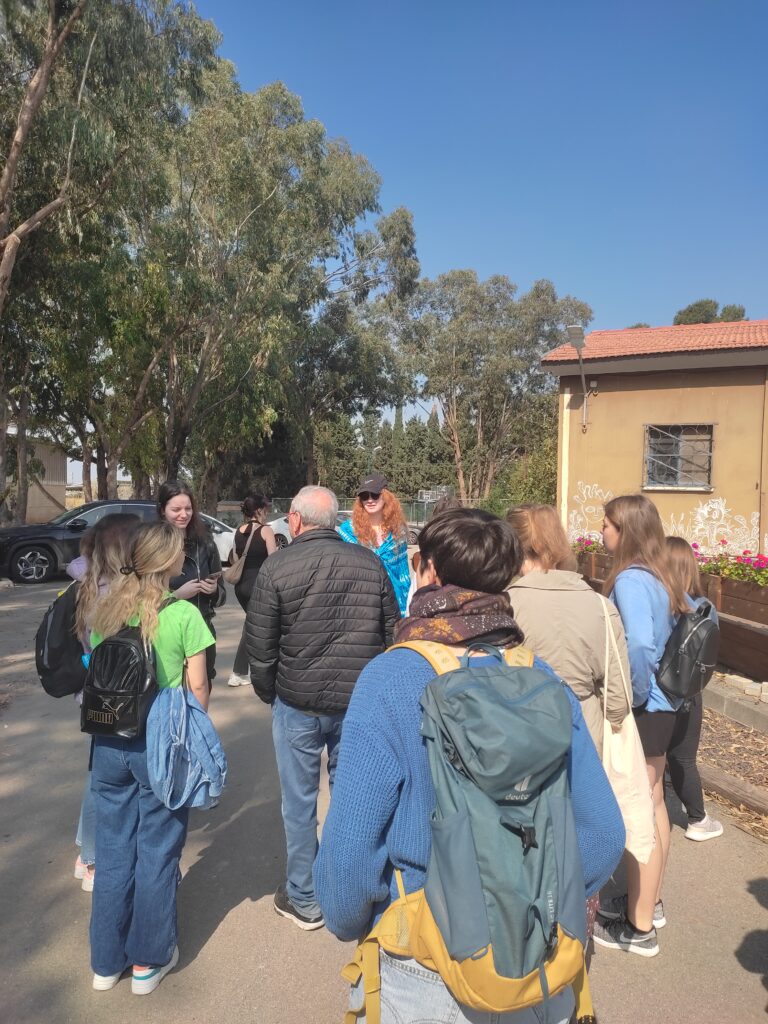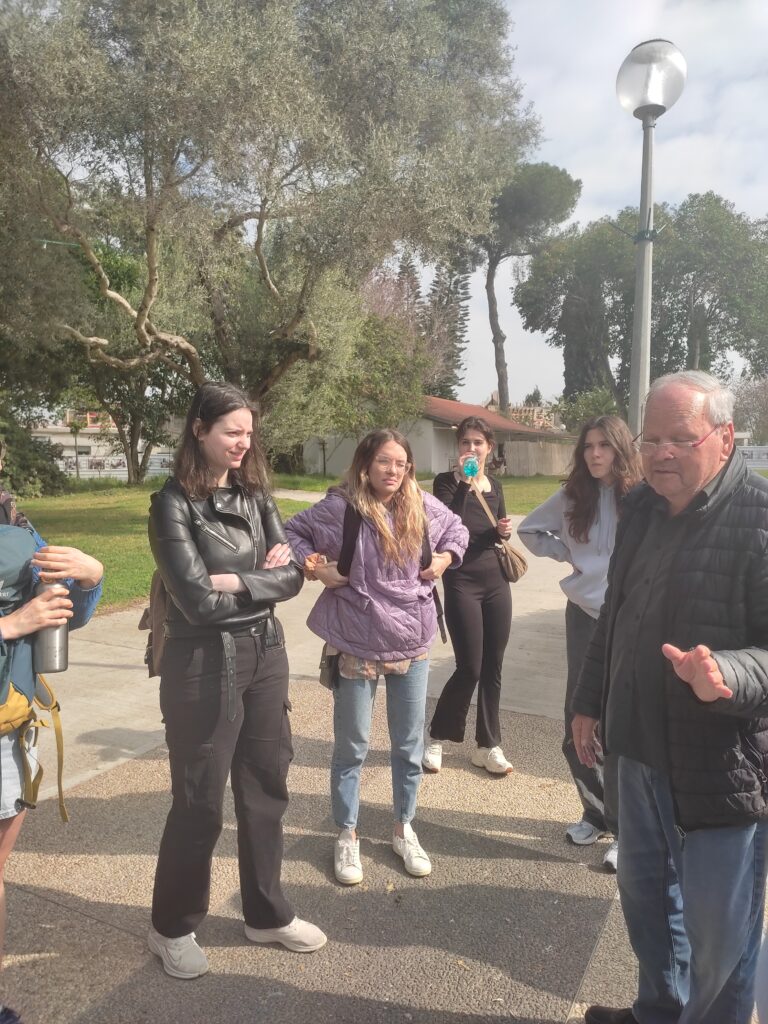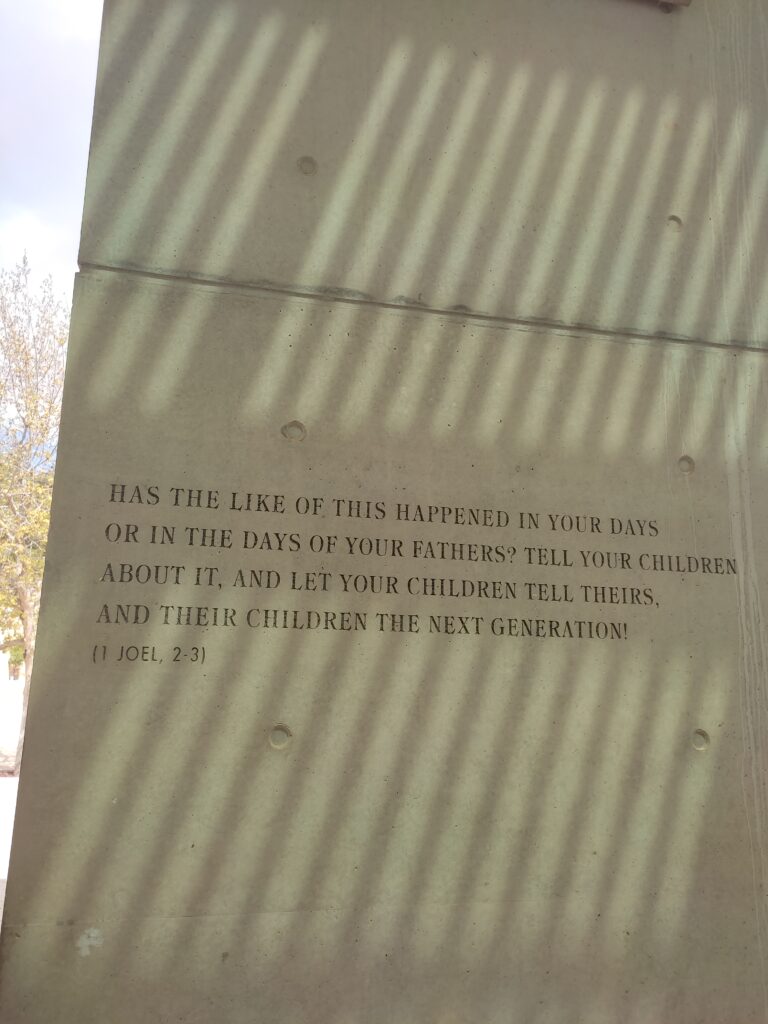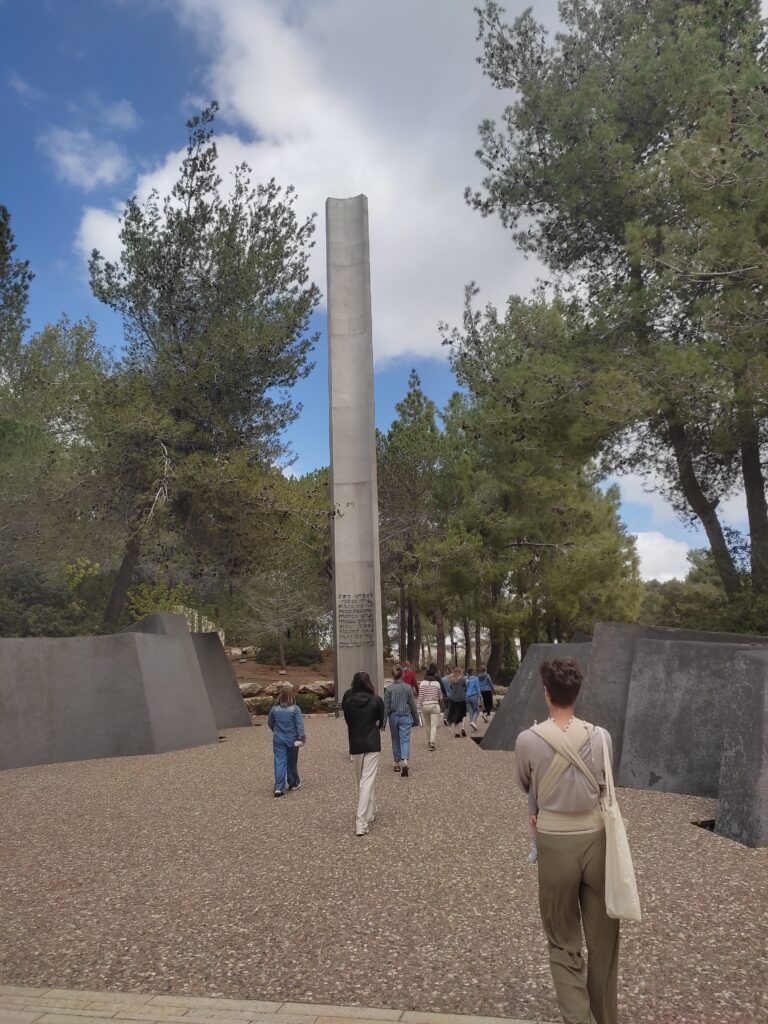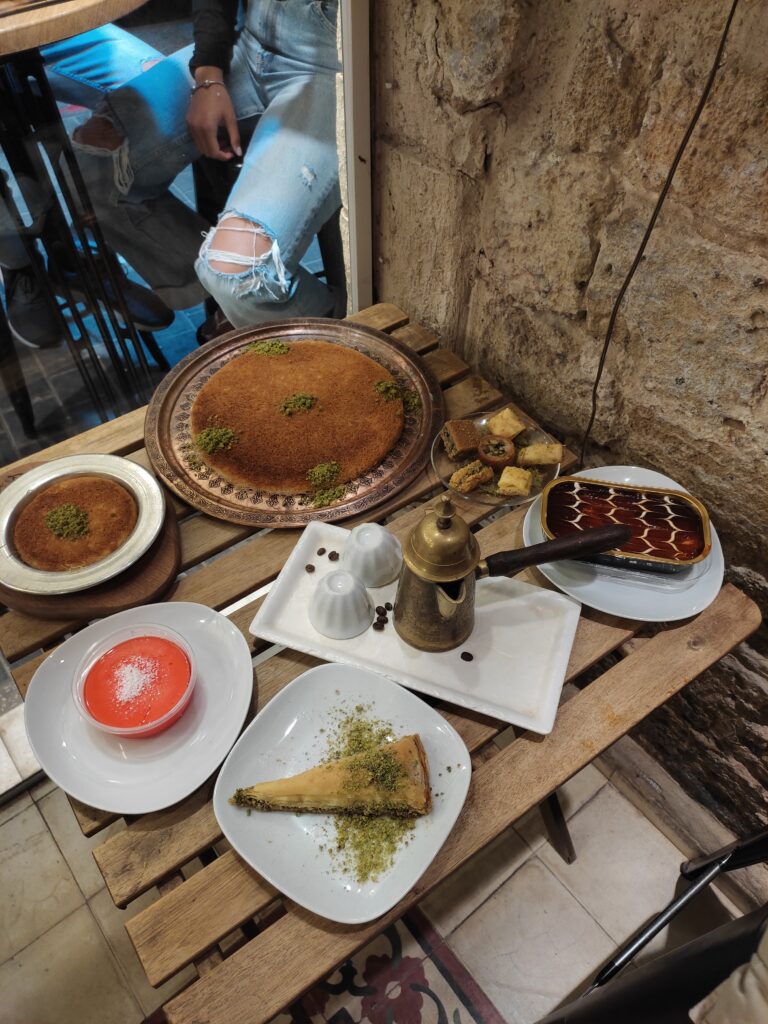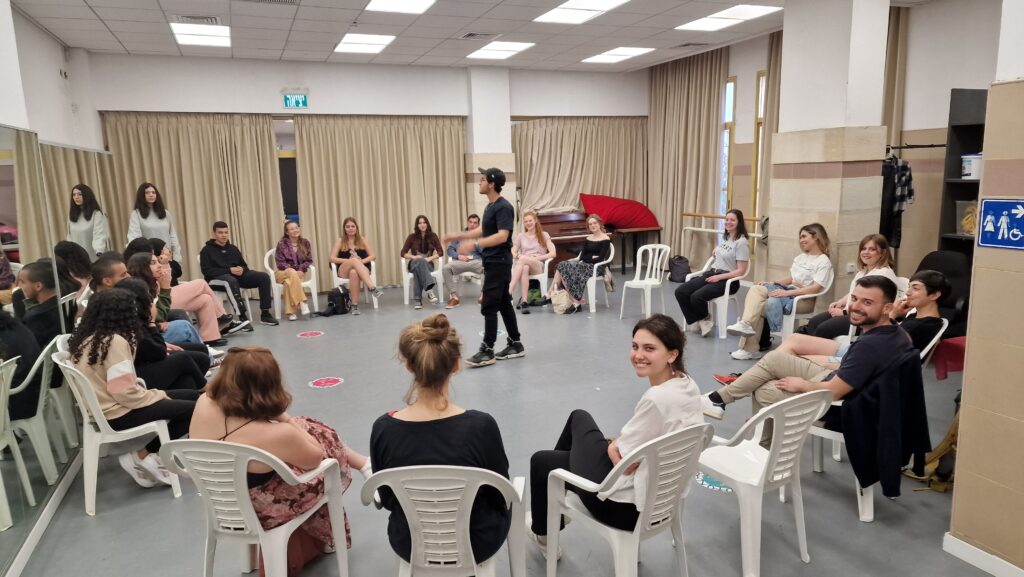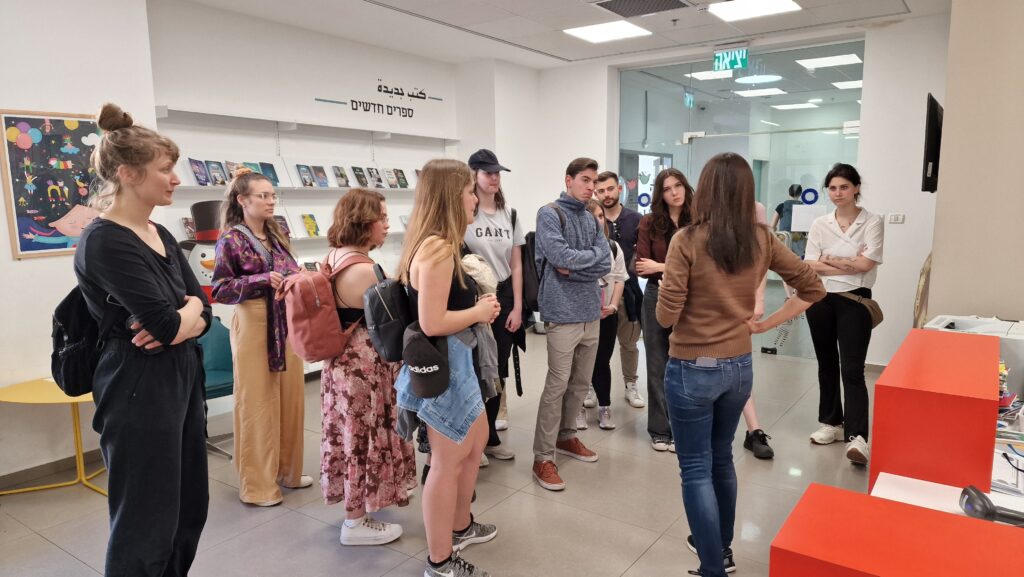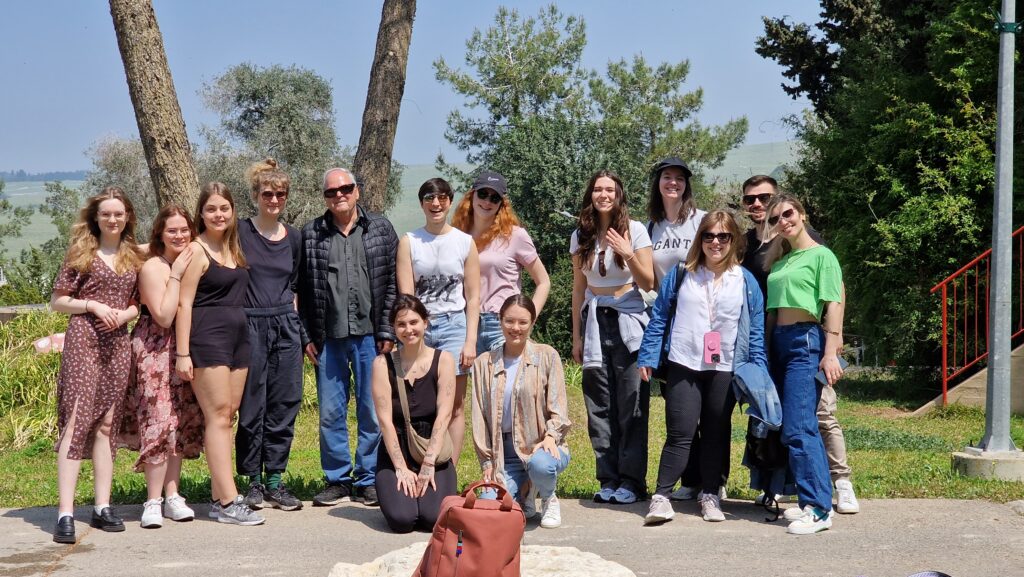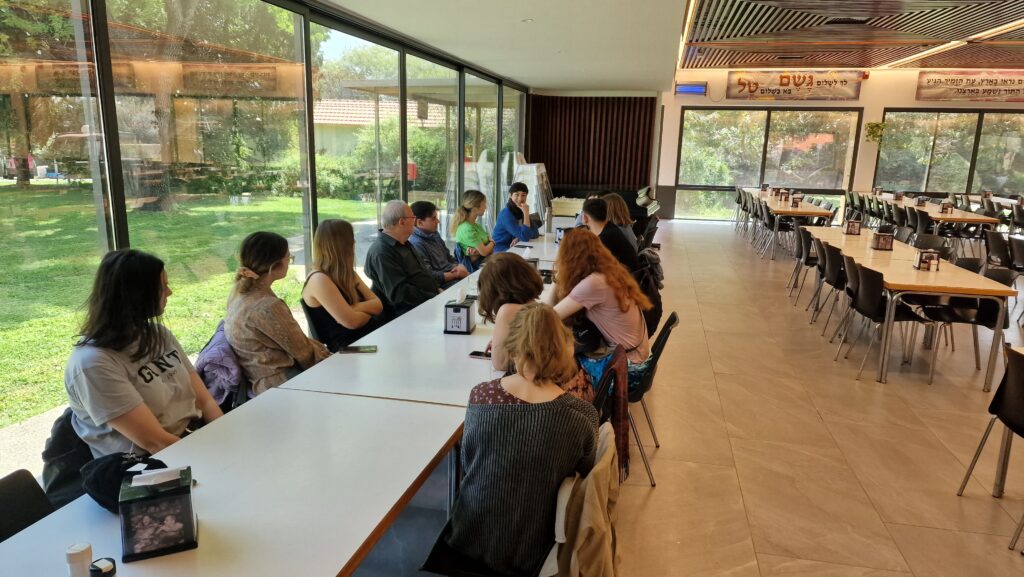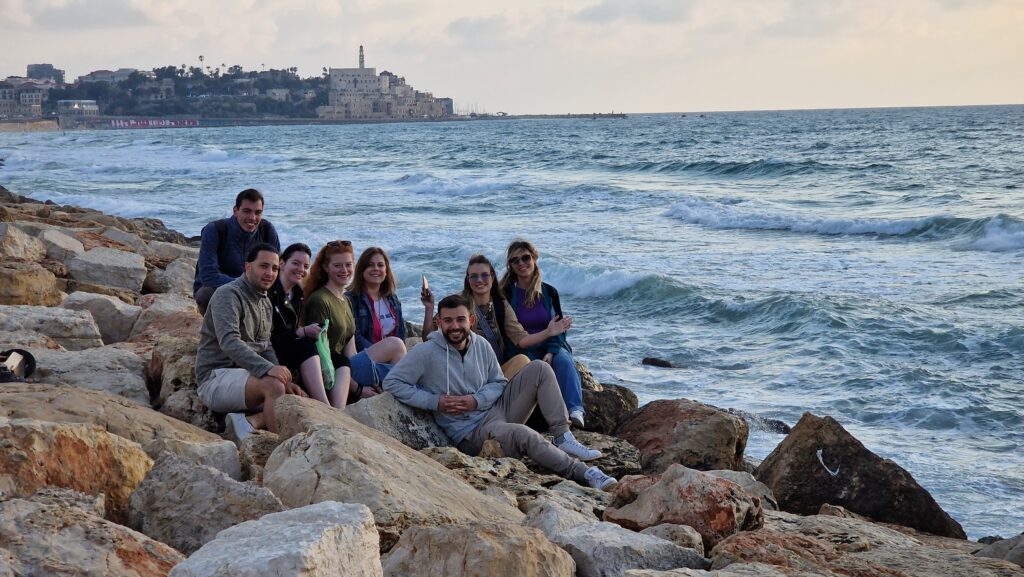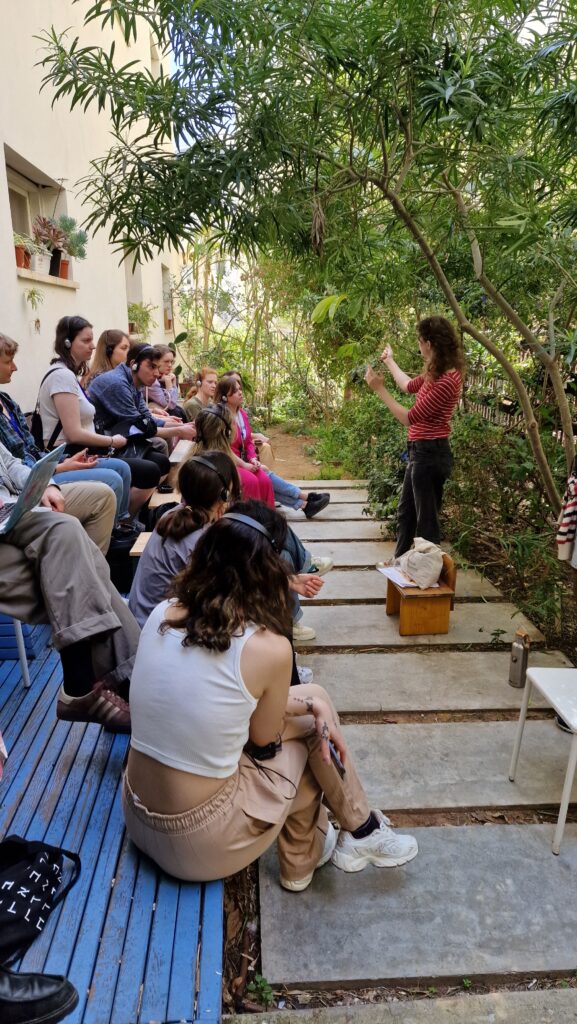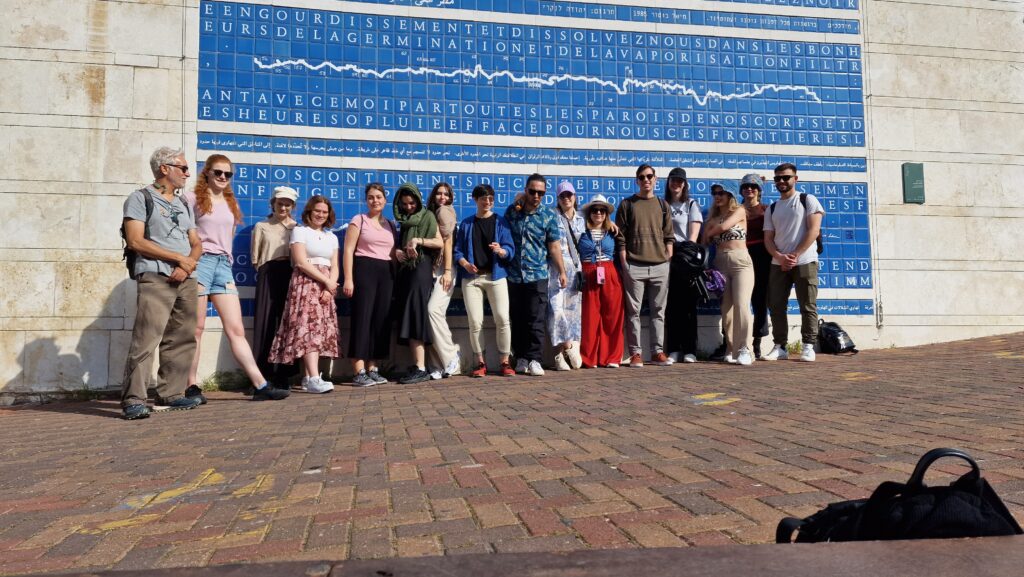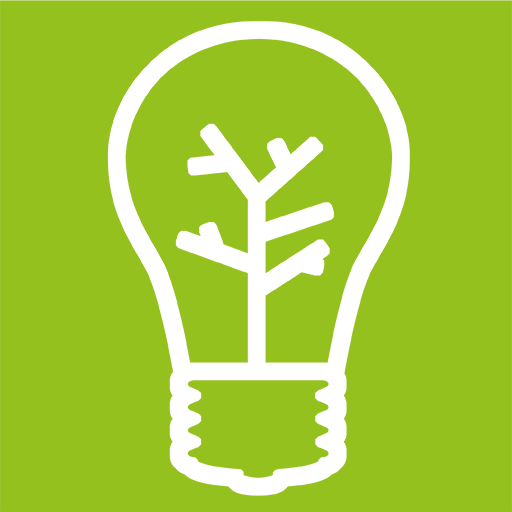After checking out the situation on the ground with our experts from Germany and Greece at the end of February, our young Greek and German participants went to Israel.
We landed on a Saturday. Shabbat, the same as our Sunday – the first challenge for us, who are used to trains running at the weekend. Not so in Israel. Friday to Saturday afternoon, the train drivers are on break here. And we had to change to a taxi, so we still arrived safely at the hotel. On Sunday, we visited the Carmel market and had the opportunity to stock up on souvenirs and local food. Not far from the market is the Lieblinghaus, the centre of Tel Aviv’s White City, a district from the city’s founding days that was built entirely in the Bauhaus style. Here we were given a guided tour of the very green settlement, which was planned around gardens. These were supposed to serve as meeting places for the residents and strengthen the community. Unfortunately, however, the gardens are increasingly giving way to other uses and are only rarely used communally. A phenomenon that is all too familiar from other large cities.
The next day we drove to Haifa, where Lior, one of our project partners, welcomed us. He works at the university with students from different cultural and religious backgrounds and told us not only about his work, but also about the very intercultural history of the city. Unfortunately, our planned meeting with one of his student groups had to be cancelled because there was a strike all over the country that day and therefore the university was also closed.
At Kibbutz Gal’Ed the next day, we learned more about this type of community. A kibbutz is a collective settlement with common property and grassroots democratic structures. Yotam, who has lived on the kibbutz since childhood, told us about life there and how the community functions.
The visit to the Holocaust memorial Yad Vashem left a deep impression on all of us, which we reflected on in joint discussions. Accordingly, we took it easy in the afternoon and had no fixed programme. But we started early the next day: to Nazareth with our guide Benny, who had a lot to tell us about this important city for Christianity. Countless smaller and larger churches in a very confined space in a city with predominantly Muslim inhabitants. An exciting mixture with a relaxed atmosphere. However, the rain and the rather chilly temperatures made things a bit difficult for all of us. The lack of sleep did the rest and so most of us used the return journey to doze off. In Tel Aviv, our project partner Irgun Jeckes was waiting for us, who organised a celebration in honour of their scholarship holders that afternoon. Everything was in Hebrew. We didn’t understand a word, but had fun anyway and some clever participants had the idea to have the PowerPoint slides of the lectures translated with their mobile phones – with sometimes quite entertaining results.
Friday was dedicated to creatively processing what we had experienced over the past few days, sifting through material in small groups and talking about our impressions.
We took it easy on our last day together in Israel. Some of us went for a walk on the beach or ate Knafeh (a dessert made of fine noodles, a kind of mozzarella and lots of sugar). The only fixed programme items on this day: feedback round (which was very positive) and farewell dinner (we had pizza). And of course the annoying packing for the departure the next day. What a pity. Already over.
Nine days full programme, many incomparable experiences and encounters lie behind us. And they make us want to get to know new people and places. Perhaps we will see each other again at one of our events.
